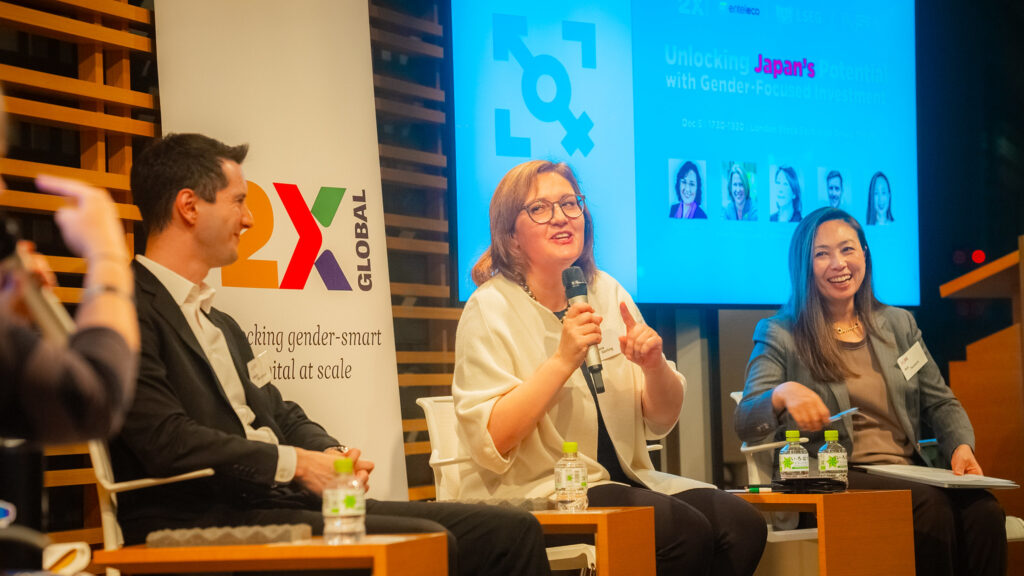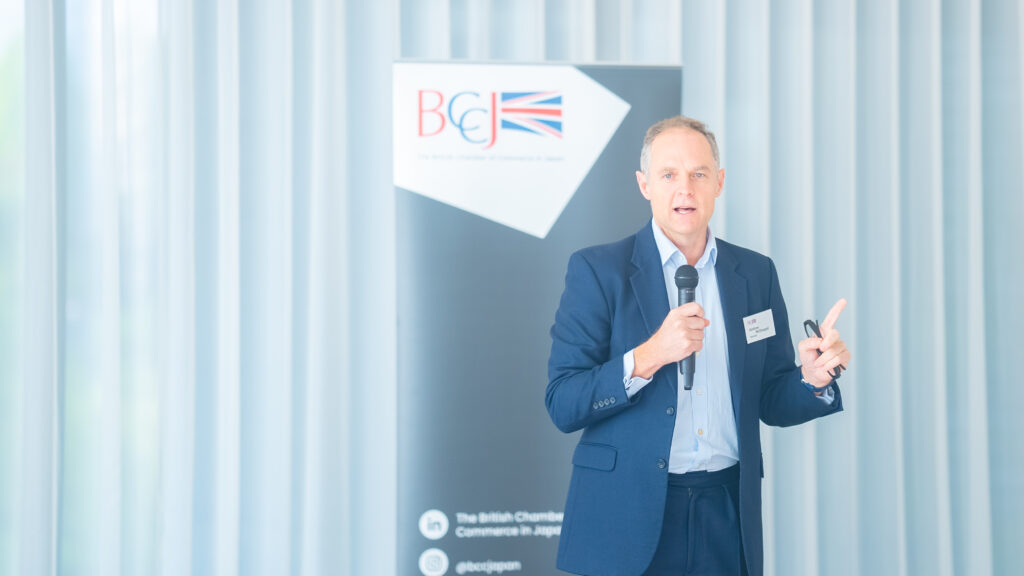Member? Please login
Unlocking Japan’s hidden corporate value

Written by Sterling Content
December 6, 2018
Past Event Round Ups
Japan’s corporate governance practices have been boosted by reforms including corporate governance and stewardship codes, improving the nation’s reputation among global investors.
Yet Ryohei Yanagi, chief financial officer (CFO) of Japanese pharmaceutical giant Eisai Co., Ltd., sees even greater potential for Japan to increase market value, if it can successfully add the return on equity (ROE) component to ESG (environmental, social and corporate governance).
Yanagi shared some of his insights at a BCCJ breakfast event entitled “Corporate Governance: Japan’s Inconvenient Truth,” held on November 27 at the Shangri-La Hotel Tokyo.
Undervalued firms
With Japanese firms
trading at around a third of the US level and half of the UK level in terms of average share price to book value, Yanagi said enhanced corporate governance could be key to raising their market value.
“There is nearly ¥200trn (£1.4trn) sleeping on Japanese companies’ corporate balance sheets—this has almost doubled in the past 15 years,” he said, noting that more than 10% of Japan’s listed companies have cash and securities holdings exceeding market capitalisation.
These excess cash levels have encouraged activist investors for Japanese firms to pay higher dividends to unlock value, as seen in London-based asset value investors’ push for Tokyo Broadcasting System to sell its stake
in Tokyo Electron and distribute the proceeds to shareholders.
Yanagi said his annual survey of global investors had seen improved sentiment before and after Abenomics, with the approval rating for Japanese companies rising to 25% compared to just 5% previously.
However, still some “75% of global investors are not satisfied with Japan’s corporate governance,” he said.
Concerns among global
investors include Japanese firms’ cross-shareholdings, high cash levels, the potential for “value-destructive” overseas acquisitions and low ROE, with an 8% ROE seen as the minimum benchmark.
Yanagi said Japanese firms need to emulate corporate governance practices in the UK, such as having boards consist of mostly independent directors, separating the roles of chairman and CEO and ensuring nomination and compensation committees are comprised of independent directors.

Stick and carrot
Noting Japan’s “deeply rooted” corporate culture based on a system of “bank governance” after World War II, Yanagi urged a “stick and carrot” approach to “change the mindset of corporate executives.”
For the stick, he poi
nted to the Corporate Governance Code, which could force CFOs to explain the rationale for cross-shareholdings and unwind them if they are found to be of negative value, for example.
In contrast, the carrot could be earned through media and investor accolades for improved corporate governance, ultimately leading to higher market value.
Giving an example, he said that “some Japanese companies try to enhance ROE to be included in the JPX-Nikkei 400 index.” This index of 400 stocks screens entrants on a range of factors, including the appointm
ent of outside directors.
In addition to Eisai, Yanagi nominated manufacturer Komatsu, electronics maker Omron and Sumitomo Chemical as examples of organisations noted for their corporate governance.
However, he said that, as ESG grows in importance in Japan, it needs to be linked to ROE, as seen in academic research showing a positive correlation between ESG and corporate value.
For Eisai, he gave the example of a “ROE–ESG” model project in which the company is providing up to 2.2bn free DEC tablets to the World Health Organization to combat lymphatic filariasis. It is a move that ultimately should enhance both the firm’s brand and market value.
Asked about risk management, Yanagi said it could lead to a lower cost of capital, which at Eisai he had calculated as being 0.3% lower due to its enhanced corporate governance rating.
“Many Japanese companies have developed ESG sections … but investor questionnaires are often a box-ticking approach, about items such as your emissions level, female ratio of directors, outside directors,” he said
. “Rather than waiting for investors to ask questions, they should engage with global investors and explain the value of ESG.”
Asked what qualities firms should look for in appointing outside directors, Yanagi pointed to a number of essential skills, but emphasised the need for financial literacy.
“Of course, independence is a pre-condition, avoiding conflicts of interest … But, besides that, financial literacy or literacy of value creation is important—they should understand what is affecting corporate value, including risk management and ESG. And they should understand the cost of capital, NPV [net present value], DCF [discounted cash flows].
“For example, I propose a $500mn acquisition in the US to purchase a new product. The CEO is positive, internal board members say yes sir, of cour
se, and the auditor and lawyer approve. But outside directors should double check if it’s value-creative,” he said.
This skill is particularly important, given research showing some 70% of Japanese firms’ overseas acquisitions are “value-destructive,” he added.
However, change will not happen overnight, given longstanding practices such as the appointment of insiders to company boards compared to the “hired guns” common in the West.
“Japanese corporate managers have a unique culture, different from the US and UK. Genuine capitalists are rare and job mobility is scarce … ther
e are few professional CEOs and few real CFOs in this nation,” he said.
“We should meet halfway—Japanese-style, corporate capitalism based on ESG, financial returns and value creation. To create this, we need more diversity on boards—foreigners, females and job hoppers. And job liquidity should be more solicited.”
He added: “Education makes a difference, so that’s why I’ve been teaching at Waseda [University] for 10 years. I’m cautiously optimistic that, in 10 years, Japan will be totally different. We have excellent younger managers climbing the corporate ladder. That will change corporate
Japan to be value-creative, in my view.”








